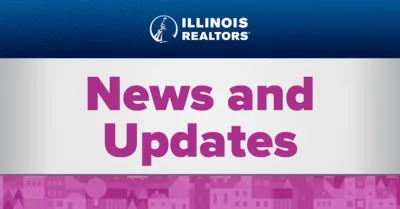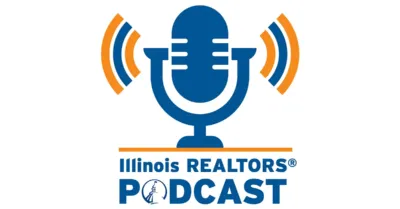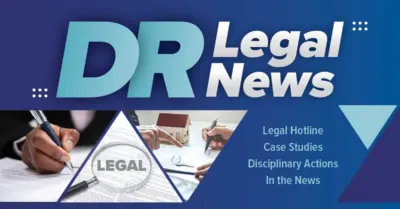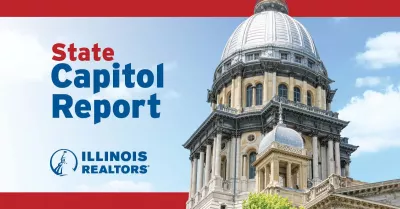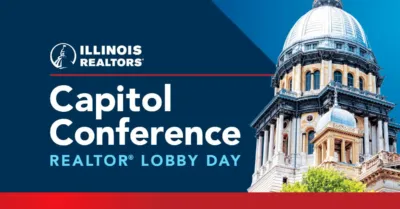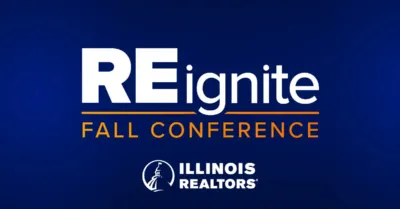Designated Managing Broker Dos and Don’ts
The Designated Managing Broker (DMB) in any office has certain oversight responsibilities under the Illinois Real Estate License Act (RELA) even though sponsored licensees are considered independent contractors. This can happen in regulated industries where the consumer protection concerns are of utmost importance. This space provides a quick review of DMB responsibilities: A Dos and Don’ts list, if you will.
DO have a written office policy. (This is also required under RELA)
Every office, except a one-person sole proprietorship who does not sponsor other licensees, must have a company specific written office policy.
Why you ask?
- The written policy provides guidelines and standard procedures for both experienced and inexperienced agents.
- It can also protect the company and the DMB from potential liability when an agent “goes rogue.”
- It can be a good tool to provide process for resolving internal and external issues.
Do train new and existing agents on the most current office policies on a very regular basis.
Do make sure all licensees associated with the company know how and where to access the Office Policy Manual for guidance.
Don’t throw the policy in a physical or virtual drawer never to be found again, or until there is an audit or investigation happening.
DO oversee the agents associated with and sponsored by your company.
This is generally a good practice, and while RELA requires a certain amount of oversight over all sponsored licensees it also contains some very specific requirements for oversight of newer broker licensees.
Consumer protection regulates the industry so even though brokers are treated as independent contractors, there is a level of oversight required by the DMB.
Do remember those broker licensees who have not completed their 45-hour post-license education must be under the direct supervision of their DMB.
Specific Requirements/Prohibitions for new broker licensees:
- Don’t allow new broker licensees to bind the company by signing contracts to which the company is a party. This includes brokerage agreements, like listing agreements with seller clients and buyer brokerage agreements with buyer clients.
- Don’t allow new broker licensees to handle earnest money or other escrow deposits and transmissions.
- Do assist new broker licensees with contract negotiations.
Here are some practical ways DMBs might handle these requirements:
- For earnest money/escrow handling. The office manager could have a specific process where money tendered is physically or electronically logged in to the company business office under the direct supervision of the DMB, because the DMB is included as a party in the written or electronic transmission of the deposit loop.
- For document signing, electronic options can be very helpful tools so the DMB can see all documents being processed in a transaction and ultimately, at least where new broker licensees are involved, the signing can be restricted to the DMB only. For other situations, the DMB could establish office policies and procedures related to who has or hasn’t got signing authority to bind the company.
Do consider mentoring programs for your office. Assign professionals you trust the most to help you to oversee others in the office who must have, or sometimes, just need, a little extra assistance.
DO succession planning.
In other words, be sure you have the “beer truck backup plan.”
- Professional DMBs should ask themselves how the company will continue should they or other key associates not be available for some unforeseen reason.
- No one ever knows when a company will be affected by death, illness or disability.
- As part of the analysis, consider how the business is formed. If it is not already a separate legal entity like a corporation or limited liability company (LLC) consider why it might be beneficial to form a legal entity as opposed to operating as an unincorporated sole proprietor. A big advantage is that the business entity is perpetual so with appointment of new people the entity continues to operate. Sole proprietorships end when the owner’s life ends or when the owner elects to close shop. (This is an overly simplistic explanation, but it makes the point).
DO keep an updated list of the sponsoring company’s sponsored licensees.
As previously stated, brokerages could experience an unexpected loss or even a departure of a sponsored licensee, so it is good for the DMB to have updated “snapshots” of the list.
Not only is it good for internal business controls, but also RELA requires the sponsoring company to keep the list of sponsored licensees current with the Illinois Department of Financial and Professional Regulation (IDFPR).
The sponsored licensees are likely required by the terms of their independent contractor agreements to notify the DMB before leaving, but notice is rarely given. Regular checks of the list will help the DMB track those sponsored licensees along with company assets.
- DMB and Illinois REALTORS®’ Business Issues Forum Chair, Brian Kwilosz recently shared that he does two things to accomplish this task:
- He has an electronic spreadsheet of his company’s sponsored licensees in his office.
- He regularly compares that list with the list on file with IDFPR. IDFPR will provide its official list at the DMB’s request.
Speaking of company assets, the brokerage agreements (listing contracts) are between the seller and the brokerage company. As a result, they are company assets and sponsored licensees are not free to take those when they leave unless this is specifically negotiated in the licensee’s independent contractor agreement.
- If the licensee induces the breakage of these agreements without the permission of the current sponsoring broker, there are potential RELA and Code of Ethics violations.
DO invest in, and have a policy, for the company and its agents to be covered by both Errors & Omissions (E&O) and General Commercial Liability (GCL) insurance.
While E&O is not required by law, it is a HIGHLY RECOMMENDED risk transfer tool. This is true unless the company is able to self-insure (that is cover the cost of any business risk on your own). E& O covers business decisions, practices, mistakes, etc.
GCL covers personal or property damage.
Double-check the policies to see what is covered and what is not, then make a business decision that will work for your company and those who are sponsored under your banner.
NAR.realtor has more information on E&O insurance.
This list of DMB Do’s and Don’ts should be helpful to DMBs as they navigate all the waters that make up the real estate brokerage practice, to assist their sponsored licensees and make their practices safe and professional.
Designated Managing Broker Dos
Hover to view the quick listDesignated Managing Broker Dos
DO have a written office policy which includes regular training
DO oversee the agents sponsored by your company
(Especially new broker licensees who have not completed post-license education)
DO have a succession plan for your company
DO keep a current list of licensees sponsored by your company.
(Double-check your list with IDFPR’s)
DO have written independent contractors’ agreements with your sponsored licensees
DO strongly consider both E&O and GCL insurance coverage
Designated Managing Broker Don'ts
Hover to view the quick listDesignated Managing Broker Don'ts
DON’T throw the office policy in a file and forget about it
DON’T allow new broker licensees (who haven’t completed post-license education) to:
- Handle Escrow funds including earnest money deposits
- Sign contracts that bind the company, i.e., listing agreements and buyer brokerage agreements
- Negotiate contracts without DMB supervision and oversight
DON’T practice real estate brokerage without insurance coverage unless you can afford to “self-insure”
About the writer: Elizabeth A. (Betsy) Urbance, General Counsel and Vice President of Legal Services has served the association’s members as General Counsel since 2018 and prior to that she was Legal Hotline Attorney since 1994. Urbance is a 1984 graduate of Western Illinois University and received her law degree from the University of Missouri School of Law in 1987. She is licensed in both Illinois and Missouri.




